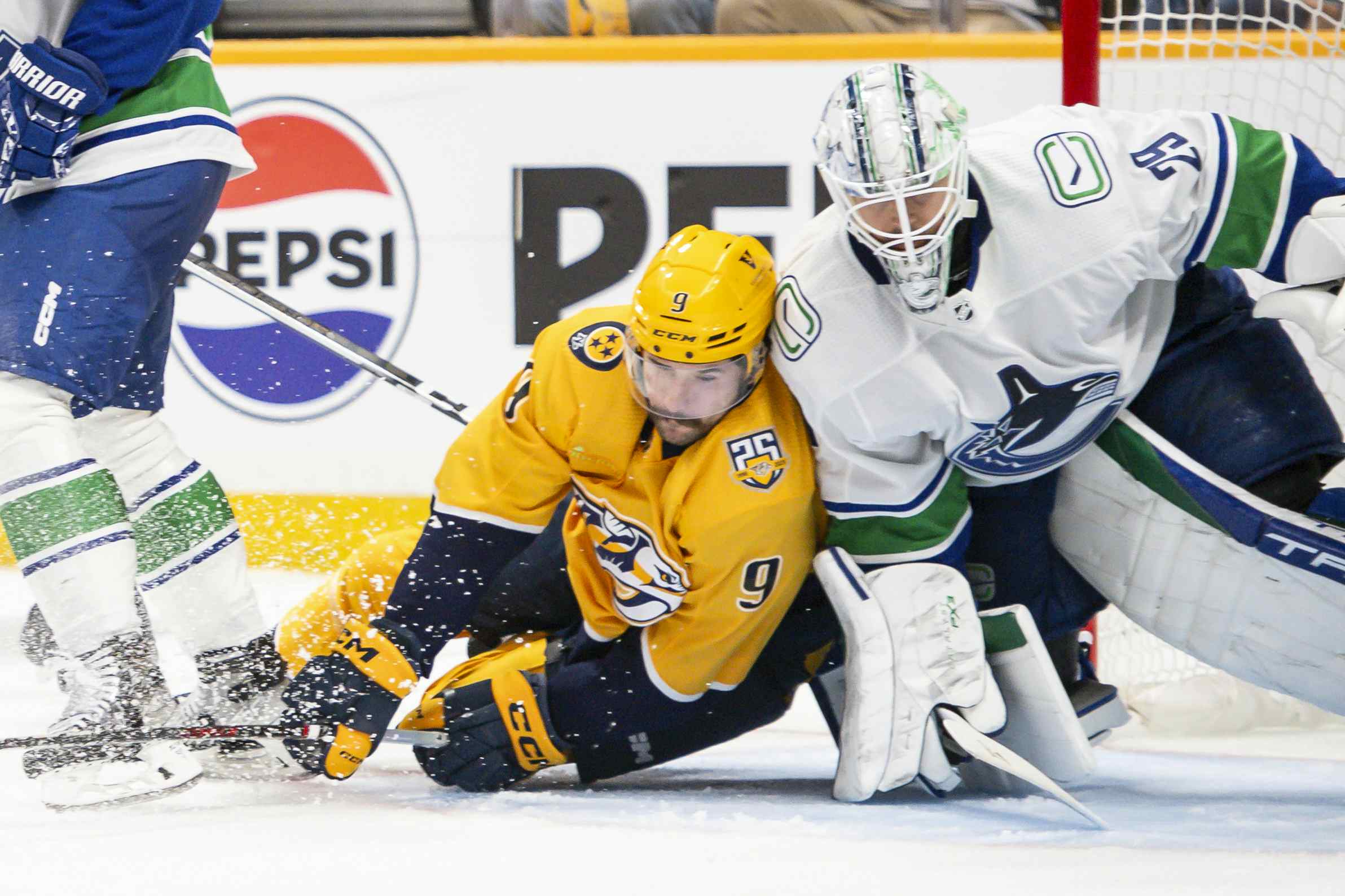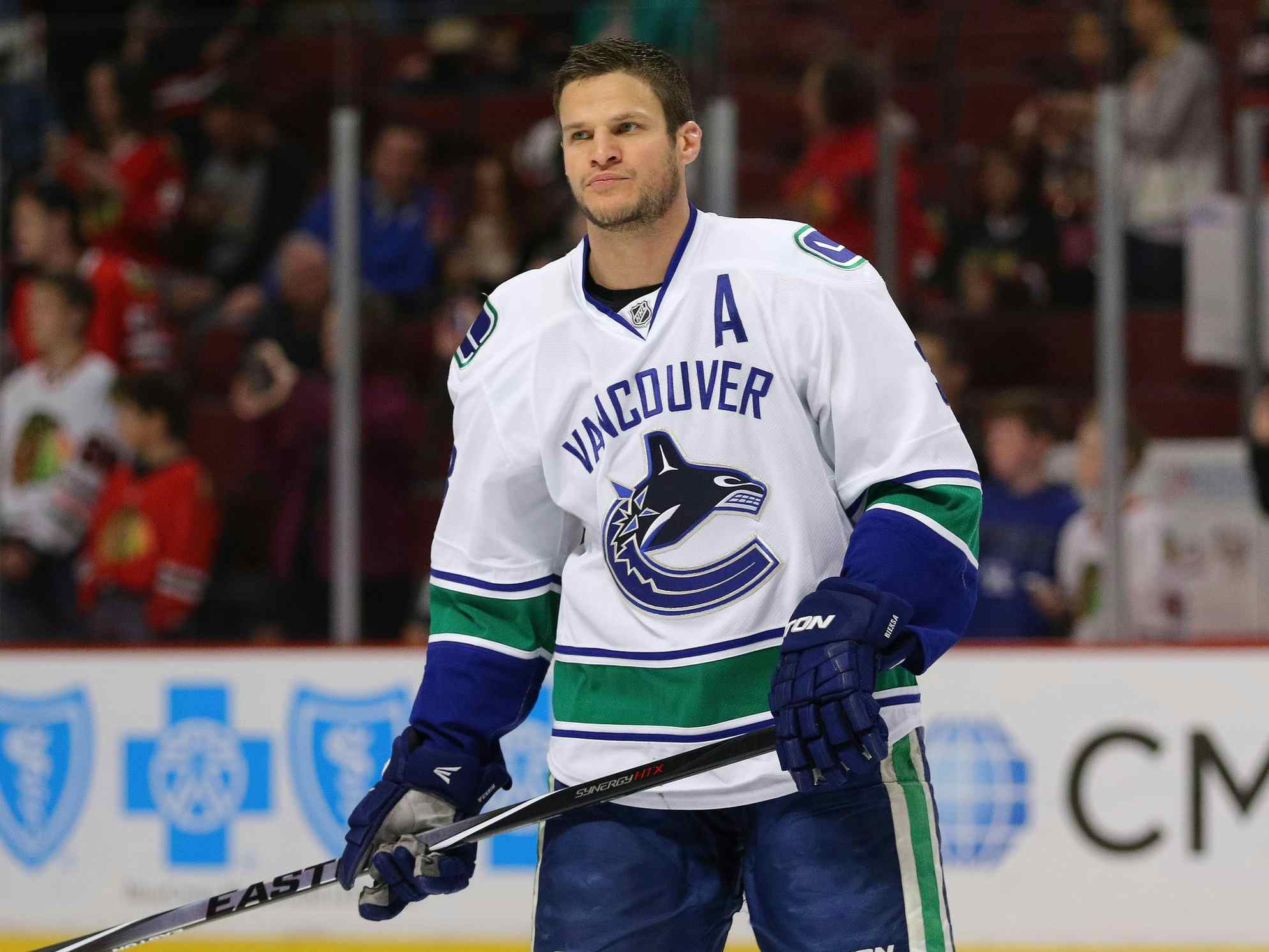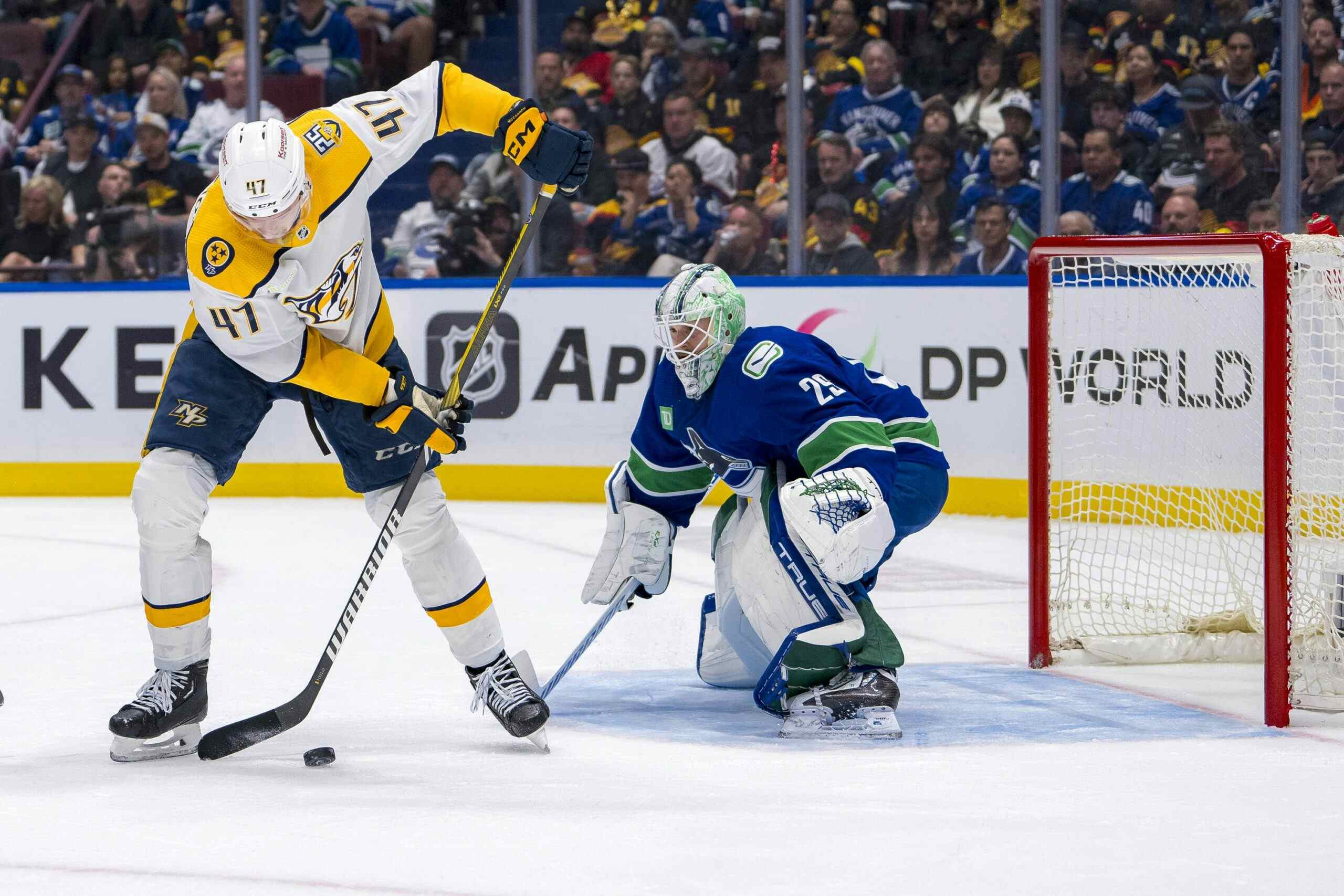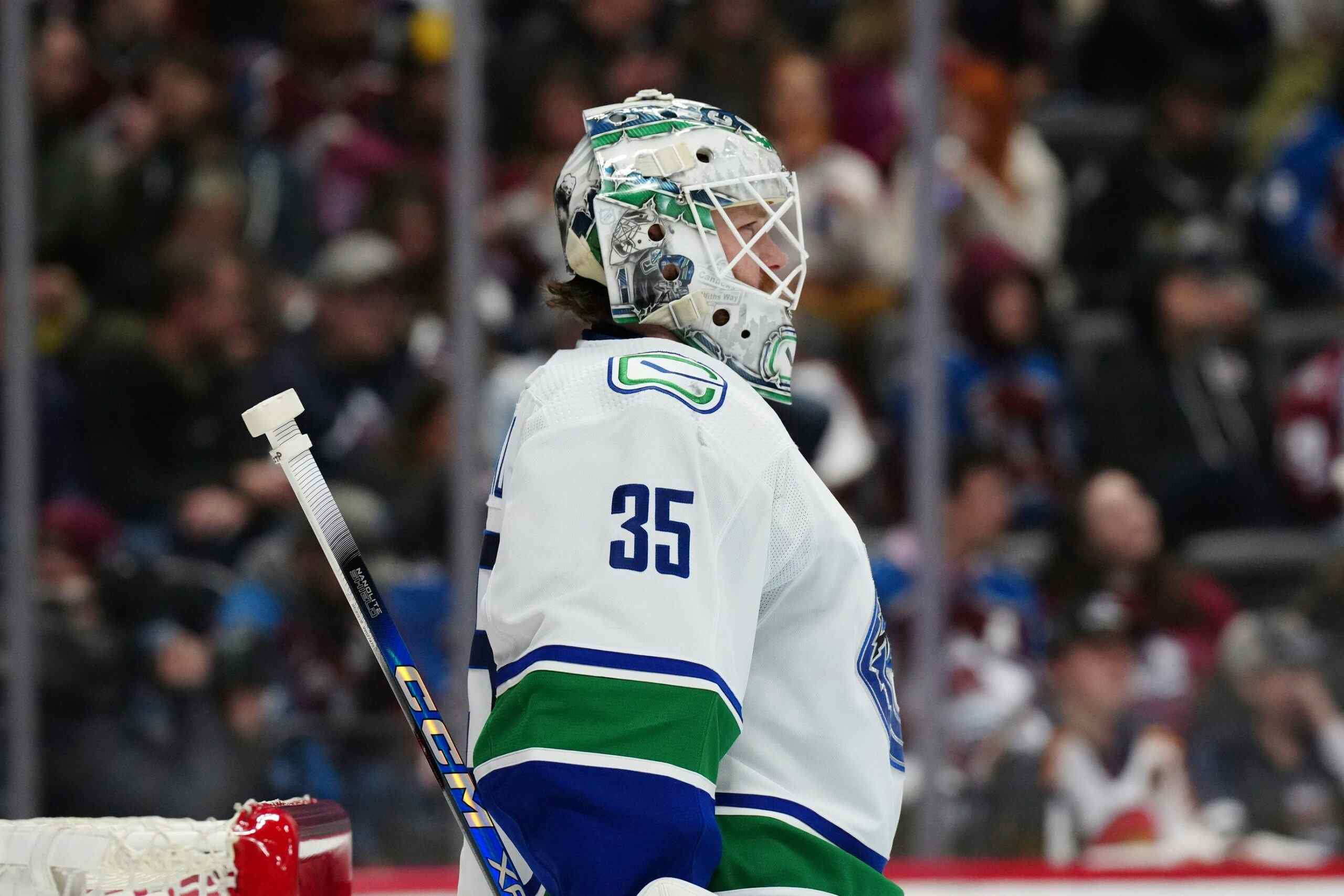Snap Shots: How Quinn Hughes stacks up against the other All-Star defencemen
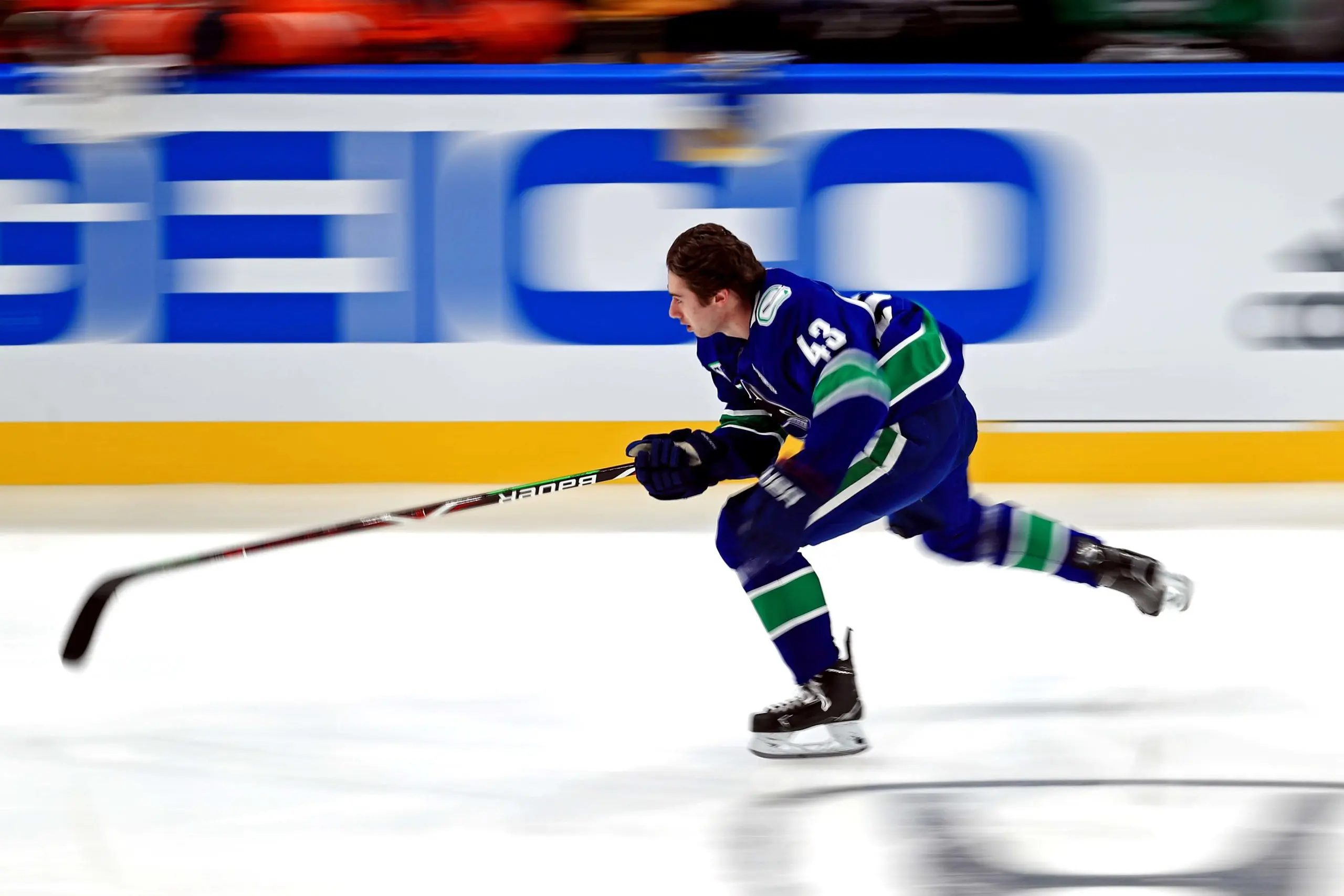
Quinn Hughes may have squeaked into the All-Star festivities via the Last Men In fan vote, but that doesn’t mean he’s any less deserving of the title.
Hughes is the third rookie that the Canucks have sent to the occasion and likely the third to feel a little out of place. Every year, rookie attendees talk about how awe-struck they feel suiting up alongside the best and brightest the league has to offer. When cameras take us through the dressing rooms to see the veteran defencemen Hughes will be facing off against, it may look a little funny to see our rookie there, but when his numbers are put up against those of other all-star defencemen, it’s clear he belongs there just as much as they do.
Having an impact on the scoresheet is the best way to convince the NHL or voters that you should attend the event, which is something Hughes has done. This chart illustrates how he stacks up in terms of raw point totals in comparison to the other defenders who are attending.

Hughes ranks 6th in points out of 11 all-star defencemen with 34 points on the season. That’s impressive enough devoid of context, but what makes it even more notable is that, at 20 years old, Hughes is 8.7 years younger than the median age of defenders at this year’s All-Star game, and five years younger than Seth Jones, the second-youngest defenceman in attendance.
The fact that Hughes has been able to hold his own among his peers is obviously a great sign for his development, given what an honour it is simply to be mentioned in the same conversation as players like Victor Hedman, John Carlson, and Alex Pietrangelo, among others. These are players that are relied upon to eat big minutes and play in most if not all situations, something Hughes wasn’t expected to do prior to this season. Following last season’s flashes of brilliance from the Michigan product, it would have been safe to expect Hughes to perform well in a top-four role and make a case for top pairing minutes this season. However, I’m not sure many would have bet on this level of play and an all-star appearance.
In such a short time, he’s earned the nod and become a go-to defender just like all the other names on that list. Month by month, he’s seen his minutes rise closer to reflect those of a top defender. Since the end of November, Hughes has averaged 23:05 minutes per game. That’s more than fellow all-star Jacob Slavin and near the group’s average of 24:22.
In addition to his solid boxcar stats, Hughes’ underlying profile is also impressive. To illustrate, we’ll use basic shares at 5-on-5 to paint a picture of how Hughes has done relative to his fellow all-star blueliners.
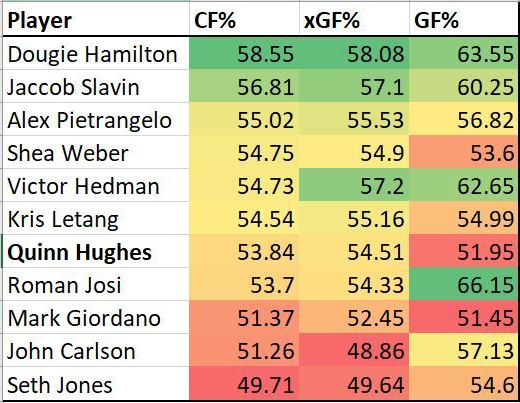
Data via Evolving-Hockey.com
Although Hughes isn’t leading the pack in shot share (CF%), expected goal share (xGF%), or Goal share (GF%), it’s still very impressive that he doesn’t look out of place. Through a little over half of his rookie campaign, he’s been able to post higher Corsi and expected goal shares than last season’s Norris Trophy winner, Mark Giordano, and this season’s Norris favourite, John Carlson.
Hughes trails most of the group in goals share, but even the fact that he’s not last by that metric among these stars speaks positively to his abilities.
No matter which way you slice it, it’s clear Hughes belongs at the all-star game, even if he looks like a Minor Hockey Player of the Week next to some of the more veteran defenders.
Recent articles from Michael Wagar


